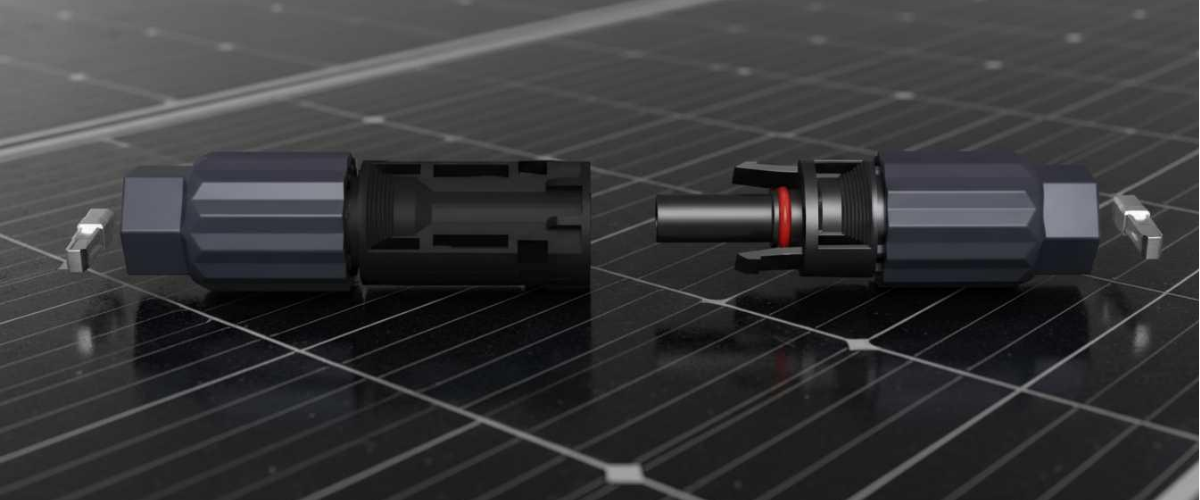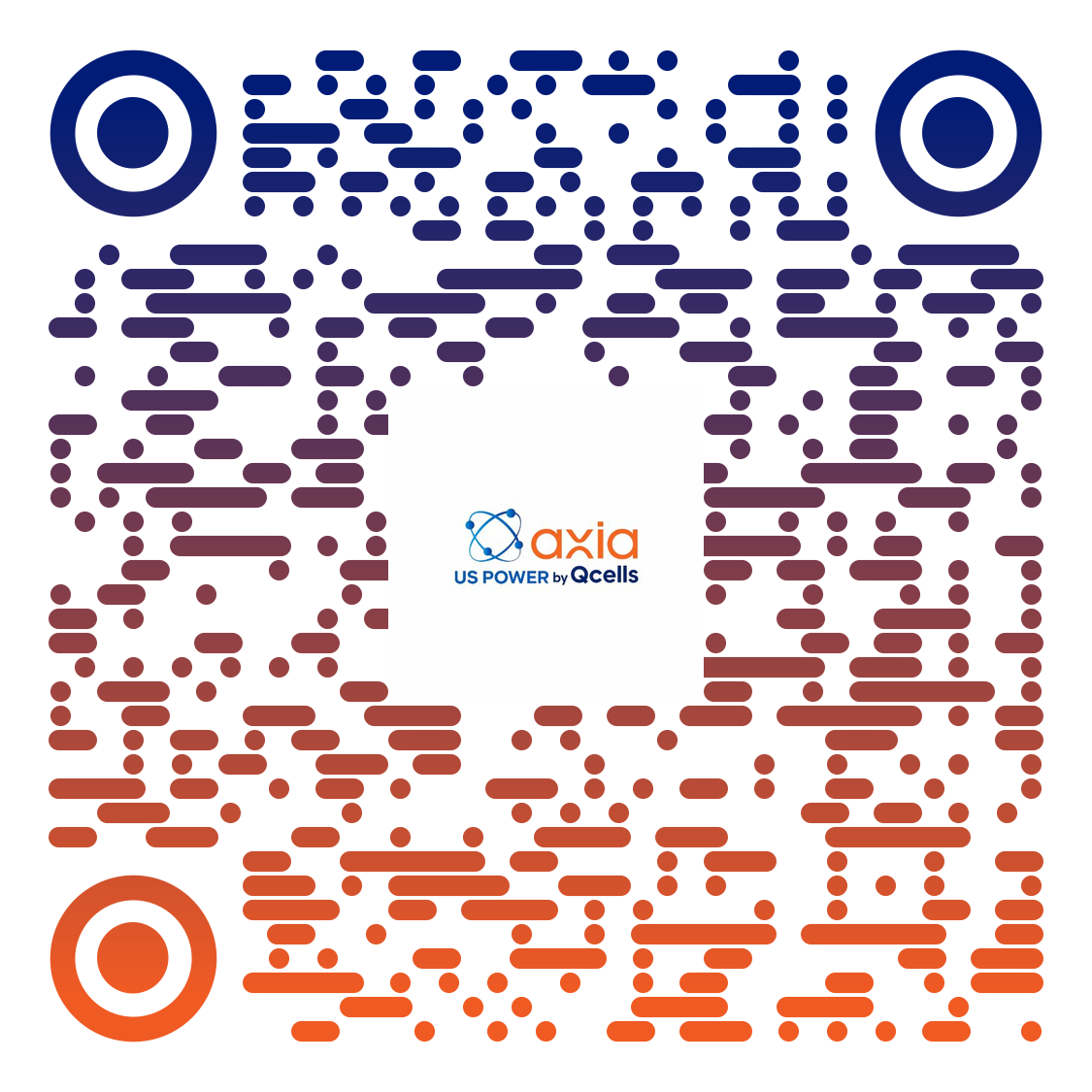Safe & Efficient Solar Connectors for Your California Home

Solar and Roofing Advisor
Find out how modern solar connectors improve energy flow and prevent risks. Stay code-compliant with UL 6703-rated connectors with Qcells and US Power.

Switching to solar is one of the best decisions a Southern California homeowner can make — it saves money, reduces grid dependence, and increases property value. But while most people focus on panels and batteries, one critical part often goes unnoticed: solar connectors.
These small yet essential components determine how safely and efficiently your system delivers power. In fact, a faulty connector is one of the most common causes of solar system underperformance and electrical faults.
This guide breaks down everything you need to know about solar connectors — from types and safety standards to why Qcells connectors, available exclusively through US Power, set a new reliability standard for 2025 and beyond.
What Are Solar Connectors and Why Do They Matter?
Solar connectors are the plugs that link your solar panels together and connect them to your inverter or battery system. They carry direct current (DC) from each panel in a secure, weatherproof path so energy can be converted into usable electricity.
Each connector ensures stable current flow, prevents electrical arcing, and protects your wiring from water and UV exposure — vital for hot, dry climates like Southern California, where roofs face year-round sun exposure and temperature swings.
A well-installed connector system can last over 25 years, matching the lifespan of your solar panels. But poor-quality connectors or mismatched types can lead to heat buildup, energy loss, or even fire hazards.
The Most Common Connector Type: MC4 and Its Successors
In residential solar systems, MC4 connectors (originally from Multi-Contact, now Stäubli) are the industry standard. They’ve been used for over a decade due to their secure locking mechanism, weather resistance, and compatibility with most PV modules.
MC4 connectors typically support:
- Voltage ratings: up to 1500V DC
- Current ratings: 30–50A, depending on the conductor size
- Protection ratings: IP67 or higher (dust-tight and waterproof)
However, as solar technology advances, newer, UL 6703-certified connectors now offer improved resistance to heat and corrosion, better safety ratings, and easier installation for large-scale systems.
Introducing Qcells Connectors: Built for Efficiency and Safety
As part of US Power’s exclusive Qcells partnership, we now offer Qcells connectors — engineered for next-generation solar systems. These connectors are designed to complement Qcells’ American-made solar panels, ensuring a seamless and efficient connection between modules.
Why Qcells Connectors Stand Out
- Factory-matched performance: Qcells connectors are specifically tested with Qcells modules to guarantee consistent current flow and temperature stability.
- UL 6703 Certified: They meet the latest U.S. safety standard for photovoltaic connectors, ensuring compliance with 2023–2025 NEC (National Electrical Code) updates.
- IP68 Weather Protection: Provides superior sealing against moisture, dust, and SoCal’s intense UV exposure.
- Temperature Resilience: Rated to handle temperature swings from –40°F to 194°F, making them perfect for California’s desert heat and coastal climates.
- Anti-arcing design: The secure locking and high-tolerance metal contacts minimize arc risk — a common cause of PV faults.
When paired with Qcells panels installed by US Power, these connectors enhance long-term reliability and keep your system operating at peak performance for decades.
Code and Safety Standards: What Homeowners Should Know (2025 Update)
Every homeowner’s solar installation must comply with California Building Codes and the National Electrical Code (NEC 2023) — both of which emphasize connector safety.
Key Requirements:
- UL 6703 listing: Only connectors tested and certified under this standard are approved for use in PV systems.
- Same-brand mating: Mixing connectors from different manufacturers can void UL certification and warranties.
- Rapid Shutdown Compliance: Required in California to reduce voltage within 30 seconds in emergencies.
- Proper Wire Sizing: Connectors must match the conductor gauge (usually 10 AWG for residential systems).
- Environmental Rating: IP67 or higher protection for dust and rain exposure.
US Power strictly follows all local codes and performs post-installation safety inspections, ensuring every connector, wire, and junction box meets current California requirements.
Common Solar Connector Mistakes (and How to Avoid Them)
- Cross-mating brands:
Mating connectors from different manufacturers might seem harmless, but it can create resistance or poor contact. This leads to overheating and loss of efficiency. - Improper crimping:
Without the correct tools and technique, crimping can leave loose contacts, causing arcing or fire hazards. US Power uses manufacturer-approved crimping tools and torque settings to guarantee safe, lasting connections. - Exposed connectors:
Leaving connectors exposed to sunlight or rain without proper sealing can cause corrosion. Every US Power install includes weatherproofing and secure cable routing to prevent moisture damage. - Unplugging under load:
Disconnecting a live connector without shutting down the circuit can cause dangerous DC arcs. US Power’s licensed technicians follow NEC shutdown procedures during all maintenance.
How Connectors Affect Solar Storage and Upgrades
In 2025, more homeowners are adding battery storage systems like the Qcells Q.HOME CORE to store excess solar power.
Using UL-certified connectors ensures smooth integration between your panels, inverter, and battery — preventing downtime or costly retrofits. If you plan to expand your solar array later, properly rated connectors make the upgrade plug-and-play rather than a complete rewire.
At US Power, we future-proof every installation by using connectors and wiring layouts that can handle expansion or storage integration without additional system redesign.
Benefits of Choosing US Power and Qcells Connectors
When you install solar with US Power, you’re not just getting high-efficiency Qcells panels — you’re also ensuring every component, down to the connector, meets top-tier performance standards.
Here’s what sets us apart:
- ✅ Factory-direct Qcells pricing: No middleman markups.
- ✅ Certified Qcells connectors: UL-listed and pre-matched for Qcells panels.
- ✅ Local expertise: We understand California permitting, AHJ approvals, and utility requirements (SCE, SDG&E, LADWP, and more).
- ✅ Professional installation: Licensed technicians ensure proper torque, polarity, and strain relief on every connector.
- ✅ Comprehensive documentation: Every project includes connector datasheets and installation photos for warranty protection.
By combining Qcells connectors and panels, homeowners benefit from an integrated system that’s safer, more efficient, and longer-lasting.
Homeowner Checklist: What to Verify Before Installation
Before signing off on your solar project, confirm the following:
- The connectors are Qcells or UL 6703-listed PV connectors.
- Your installer provides documentation of connector type and listing.
- Connectors are rated IP67/IP68 for dust and water protection.
- Proper labeling and rapid shutdown compliance per NEC 2023.
- No mixing of connector brands across modules or strings.
When you work with US Power, you don’t have to worry about any of this — our certified team handles compliance, permitting, and post-install inspection for you.
Why Connector Quality Matters More in Southern California
Southern California’s combination of high heat, dry air, and occasional coastal humidity puts extra stress on electrical components. Inferior connectors can degrade faster under UV radiation or cause performance loss during extreme temperature swings.
That’s why US Power exclusively installs Qcells connectors — they’re lab-tested for long-term durability under California’s real-world conditions, ensuring stable performance across thousands of thermal cycles.
In short, better connectors mean:
- Fewer service calls
- Higher lifetime energy output
- Greater safety for your home and family
Small Component, Big Impact
Solar connectors may be small, but they have a big impact on performance, safety, and longevity. When you invest in Qcells panels with Qcells connectors, you’re getting a system built for precision, reliability, and long-term savings.
At US Power, we make sure every connection — electrical and customer — is solid. From design to installation, we prioritize safety, compliance, and top-tier American-made equipment backed by Qcells’ manufacturing excellence.
Ready to power your home with Qcells and US Power?
Book your free solar consultation and system inspection with US Power today.
Discover how Qcells panels and connectors — installed by California’s trusted solar professionals — can maximize your energy savings and system reliability.
Frequently Asked Questions
Artículos relacionados
Nuestros blogs relacionados
Guía para propietarios de viviendas sobre la compra de paneles solares
A simple guide to buying the right solar panels for Southern California homes.
Why Every California Home Needs Energy Management
Learn how energy management helps homeowners save money and stay efficient.
Why Owning A Solar Beats Leasing, Long-Term
Discover why owning home solar panels saves more money than leasing over time.








Empoderamos a las comunidades y las empresas para que aprovechen las energías limpias y renovables energía solar soluciones que impulsan el crecimiento sostenible.
Derechos de autor © 2025 US POWER | Energía solar y techosUS Power - Axia by QCells. All Rights Reserved.
La privacidad es importante para nosotros, por lo que tiene la opción de deshabilitar ciertos tipos de almacenamiento que pueden no ser necesarios para el funcionamiento básico del sitio web. El bloqueo de categorías puede afectar a su experiencia en el sitio web.
Imprescindible
Estos elementos son necesarios para habilitar la funcionalidad básica del sitio web.
Personalización
Estos elementos permiten que el sitio web recuerde las elecciones que ha realizado (como el nombre de usuario, el idioma o la región en la que se encuentra) y proporcionan funciones mejoradas y más personales.
Mercadeo
Estos artículos se utilizan para ofrecer publicidad que sea más relevante para usted y sus intereses.
Analítica
Estos elementos ayudan al operador del sitio web a comprender cómo funciona su sitio web, cómo interactúan los visitantes con el sitio y si puede haber problemas técnicos.
Nosotros y nuestros socios externos utilizamos cookies y otras tecnologías para mejorar y rastrear su experiencia en este sitio, realizar análisis y personalizar el marketing para usted. Al usar el sitio, aceptas que usemos estas tecnologías, incluido el registro y el monitoreo de tus interacciones con el sitio.
¡Obtenga una estimación solar instantánea usando el satélite!










